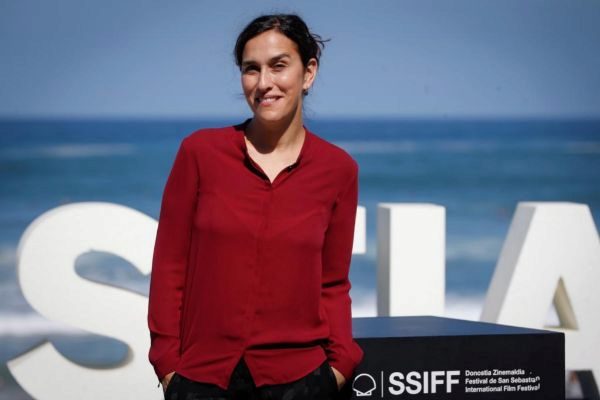- Donald Sutherland. "The attitude of the UN on the environment is crap"
- Antonio Resines. "Against Amenábar are the same as against Trueba"
- 'Zeroville'.James Franco, the worst of all
- Cinema.Women who will give the embrace of 'Homeland'
We tend to think, as the kid's psychologist tells us every time there is an urgency, that adolescence is a stage of life. We do it perhaps to not suffer so much, to convince ourselves that everything, including one's life, is temporary. But, and we are sorry to give such bad news, it is not so. Actually, that uncertain age between unconsciousness and maturity is consubstantial with the very fact of being alive. And it is not that we say so, people as disparate as Hesse, Twain or Salinger are convinced of it. Adolescence is, to understand us, a state of the soul.
And Rocks , by Sarah Gavron , also endorses the thesis. Basically, what the film with which San Sebastián did was to conclude the official section (not the festival as a whole) is to radiograph the world of a group of, indeed, teenagers. All of them women. But it does, and there its greatest virtue, not so much pending details or anecdote, but also, as it vibrates inside. And that is where issues such as responsibility with freedom intersect; the fault with forgiveness; the pain with the pleasant sensation of recognition. To understand what we are talking about, you have to take a leap more than 10 years ago.
It was in 2008 when the Cannes Film Festival had the opportunity to leave for its last day of programming the film that not only marked the event but much of the cinema that would come later. Laurent Cantet's class was limited to placing himself on the side of some students and, from there, from the most obvious and feverish sense of proximity, the director made the screen manifest. What was seen was not only the troubles of a group of teenagers lost among their mobiles, their desires and much of their frustrations, a whole country was also guessed at arm's length against their crises; a republic crossed by all the cultures that define it. That, and even more importantly, the very condition of the human being that grows, that doubts, that is recognized and that is missed. It was a social portrait and at the same time a perfect metaphor for all of us, of adolescence as a state of the soul.
Well, on a Thursday in 2019, and also at the end of all the films that qualify for the jackpot, another contest returns to the same site or trench. As you like. Now instead of in Paris we are in London (East London), but the rest remains if not equal close enough. Now the focus is shifted from the chaos of a platoon of young scrambled with a teacher in front (that was The class ) to a group of friends with a mission. But, in the same way, the relevant thing is the certainty of the bodies that collide, the brilliance of the looks that are beaten and the permanent agony of the very close. It is transparent sensory cinema.
Rocks , the girl who gives title to the film, finds a good day a note from her mother on the table. The paper simply says "I'm sorry." He has left her and her little brother alone. Or not at all. Not far are her friends. With this starting point, the former director of Sufragistas manages to compose a violent poem that is adventure , denunciation, discovery and, again, manifest; a manifesto so vital, revolutionary and vivid that it can only be feminist.
The fact that the film takes place among teenagers who behave as such with an unusual fruition rather than a matter of argument is landscape. What matters, in fact, is perplexity . And that sense of helplessness that does not understand ages. Suddenly, adolescence is once again portrayed as the only sensible way to see the world: with perfectly open eyes. Who knows if, as in the class , we are not talking about the last one to be the first necessary. A very certain Golden Shell, no doubt.
According to the criteria of The Trust Project
Know more- culture
- movie theater
Toronto FestivalThe new Disney comedy: Hitler, the children's friend
Cinema 'The daughter of a thief', the first opera of the year in which Greta Fernández killed her father
Cinema Pope Francis' Social Democratic Populism

